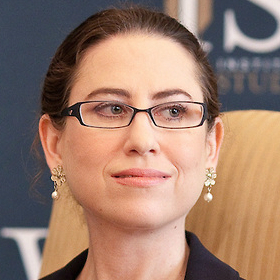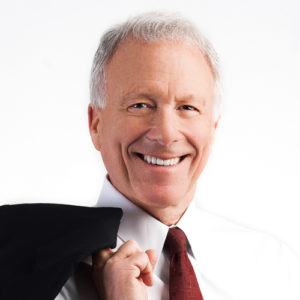War Studies Program
Learn the theory, practice, organization, and control of war and military forces.
Winter 2017
Washington, DC
This War Studies Advanced Program will introduce students to some major intellectual discussions underpinning the Salafi-jihadist ideology of al Qaeda and ISIS, while exploring the differences between the two groups as of December 2016. For this Advanced Session, the faculty will divide the students into sections (circulated on Monday morning at the all-hands introductory lecture) in order to ensure that students can participate actively in guided, seminar-style discussions. Each group will be responsible for writing a series of position papers and briefing them on Friday. The faculty will give paper assignments at intervals through the course. Each group must use its time out of the seminar to discuss and prepare the position papers.
Questions for consideration throughout the course:
War Studies Advanced Programs are open only to alumni of the basic War Studies course. These sessions are offered in the winter and summer, and focus either on a national security challenge or on a historical conflict. Learn more about the War Studies Program.
General John Allen on the military campaign against ISIS

John R. Allen is President of the Brookings Institution and a retired U.S. Marine Corps four-star general. He previously served as commander of the International Security Assistance Force in Afghanistan and special presidential envoy to the Global Coalition to Counter ISIL.

General John R. Allen is a retired US Marine Corps four-star general. During his nearly four-decade military career, Allen served in a variety of command and staff positions in the Marine Corps and the Joint Force. Allen commanded the NATO International Security Assistance Force (ISAF) and United States Forces in Afghanistan from July 2011 to February 2013. As such, he was the first Marine Corps general officer to command a theater of war.
Allen’s extensive contingency and combat operations include the Caribbean in 1994, the Balkans from 1995 to 1996, Iraq from 2007 to 2008, and Afghanistan from 2011 to 2013. From 2008 to 2011 he served as the Deputy Commander of the US Central Command (CENTCOM), the combatant command charged with the strategic responsibility for Central Asia and the Middle East.
Immediately following his retirement from the military, Allen served as the Senior Advisor to the Secretary of Defense on Middle East Security, and in that role, he led the security dialogue with Israel and the Palestinian Authority for 15 months within the Middle East peace process. At the request of President Obama, Allen subsequently served as Special Presidential Envoy to the Global Coalition to Counter ISIL, growing the international coalition to 65 members in the face of the onslaught of the so-called Islamic State.
Allen is a Strategic Advisor to The Microsoft Corporation, a Senior Fellow at the Johns Hopkins University Applied Physics Laboratory, and a Fellow of the American Academy of Arts and Sciences. He is a permanent member of the Council on Foreign Relations and was appointed by President Biden to be a member of the Naval Academy’s Board of Visitors. He was President of The Brookings Institution from 2017 to 2022.
Allen is a global thought leader when it comes to the future of warfare and the onboarding of AI and other emerging technology. He is the co-author of the book Turning Point: Policymaking in the Era of Artificial Intelligence alongside Dr. Darrell M. West (Brookings Press, 2020). He is also the co-author of Future War and the Defence of Europe alongside LTG (Ret.) Frederick “Ben” Hodges and Professor Dr. Julian Lindley French (Oxford University Press, 2021). General Allen is one of the originators of the term “hyperwar.” As a co-inventor, Allen shares five AI-related patents. He advises several tech start-ups.
John Allen is a reader of history, particularly about the American Civil War, and is an enthusiastic, but by no means expert, cyclist. He has two rescue hounds, Buttons and Cammie, and while he’s certain they’re dogs, he’s uncertain of their lineage.

LTG James M. Dubik (U.S. Army, Ret.) is a Senior Fellow at the Institute for the Study of War and a Professor at Georgetown University’s Security Studies Program. General Dubik has extensive operational experience in Iraq, Afghanistan, Japan, Korea, Thailand, Bosnia, Haiti, Panama, and in many NATO countries.

LTG James M. Dubik (U.S. Army, Ret.) is a Senior Fellow at the Institute for the Study of War and a Professor at Georgetown University’s Security Studies Program. General Dubik has extensive operational experience in Iraq, Afghanistan, Japan, Korea, Thailand, Bosnia, Haiti, Panama, Honduras, and in many NATO countries.
His last job on active duty was as Commanding General of the Multinational Security Transition Command-Iraq (MNSTC-I) and the NATO Training Mission-Iraq during the Surge of 2007–2008. He is a member of the U.S. Army Ranger Hall of Fame and a distinguished member of the U.S. Army 75th Ranger Regiment.
General Dubik taught Philosophy at West Point and Campaign Theory and Practice at the U.S. Army School of Advanced Military Studies, Fort Leavenworth, Kansas. He has completed an MIT fellowship program for national security studies as well as executive programs in national security at Harvard’s JFK School of Government and Syracuse University’s Maxwell School of Citizenship and Public Affairs. He is the author, most recently, of Just War Reconsidered: Strategy, Ethics, and Theory.
He holds a Bachelor’s Degree in Philosophy from Gannon University, Erie, Pennsylvania; a Masters in Military Arts and Sciences from the Army Command and General Staff College, Fort Leavenworth, Kansas; and a Ph.D. in Philosophy from the Johns Hopkins University.

Frederick W. Kagan is a Senior Instructor with the Hertog War Studies Program at the Institute for the Study of War. The author of the 2007 report “Choosing Victory: A Plan for Success in Iraq,” he is one of the intellectual architects of the successful “surge” strategy in Iraq. He is the director of AEI’s Critical Threats Project.

Frederick W. Kagan is a Senior Instructor with the Hertog War Studies Program at the Institute for the Study of War. The author of the 2007 report “Choosing Victory: A Plan for Success in Iraq,” he is one of the intellectual architects of the successful “surge” strategy in Iraq. He is the Robert H. Malott Chair and Director of the Critical Threats Project at the American Enterprise Institute (AEI).
In 2009, he served in Kabul, Afghanistan, as part of General Stanley McChrystal’s strategic assessment team, and he returned to Afghanistan in 2010, 2011, and 2012 to conduct research for Generals David Petraeus and John Allen. In July 2011, Chairman of the Joint Chiefs of Staff Admiral Mike Mullen awarded him the Distinguished Public Service Award, the highest honor the Chairman can present to civilians who do not work for the Department of Defense, for his volunteer service in Afghanistan.
He is coauthor of the report Defining Success in Afghanistan (AEI and the Institute for the Study of War, 2010) and author of the series of reports Choosing Victory (AEI), which recommended and monitored the US military surge in Iraq. His most recent book is Lessons for a Long War: How America Can Win on New Battlefields (AEI Press, 2010, with Thomas Donnelly). Previously an associate professor of military history at West Point, Dr. Kagan is a contributing editor at the Weekly Standard and has written for Foreign Affairs, the Wall Street Journal, the Washington Post, the Los Angeles Times, and other periodicals.
He holds a Ph.D. from Yale University in Russian and Soviet military history.

Kimberly Kagan is a Senior Instructor with the Hertog War Studies Program and founder and president of the Institute for the Study of War. She is a military historian who has taught at the U.S. Military Academy at West Point, Yale, Georgetown, and American University.

Kimberly Kagan is a Senior Instructor with the Hertog War Studies Program and founder and president of the Institute for the Study of War. She is a military historian who has taught at the U.S. Military Academy at West Point, Yale, Georgetown, and American University.
Dr. Kagan served in Kabul for seventeen months from 2010 to 2012 working for commanders of the International Security Assistance Force, General David H. Petraeus and subsequently General John Allen. Admiral Mike Mullen, as Chairman of the Joint Chiefs of Staff, recognized Dr. Kagan for this deployment as a volunteer with the Distinguished Public Service Award, the highest honor the Chairman can present to civilians who do not work for the Department of Defense.
Dr. Kagan previously served as a member of General Stanley McChrystal’s strategic assessment team, comprised of civilian experts, during his campaign review in June and July 2009. She conducted many regular battlefield circulations of Iraq between May 2007 and April 2010 while General Petraeus and General Raymond T. Odierno served as the MNF-I Commanding General.
Dr. Kagan held an Olin Postdoctoral Fellowship in Military History at Yale International Security Studies in 2004 to 2005 and was a National Security Fellow at Harvard’s Olin Institute for Strategic Studies in 2002 to 2003. She received her B.A. in Classical Civilization and her Ph.D. in History from Yale University.
Some Specialized Vocabulary used throughout the Course:
Readings:
Readings:
Readings:
Readings:
Readings:
Readings:
Readings:
Readings:
Ray Takeyh
Ray Takeyh is Hasib J. Sabbagh senior fellow for Middle East studies at the Council on Foreign Relations (CFR). His areas of specialization are Iran, political reform in the Middle East, and Islamist movements and parties. Prior to joining CFR, Takeyh was senior advisor on Iran at the Department of State.

Michael Doran
Michael Doran, an expert in U.S. policy toward the Middle East, radical Islam, and the Arab- Israeli conflict, is a Senior Fellow at the Hudson Institute in Washington, DC. He has also held a number of senior U.S. government posts related to Middle East policy and strategic communication.

Lewis Libby
Lewis “Scooter” Libby is a distinguished fellow at the Foundation for Defense of Democracies. He has held several high level positions in the federal government related to his current work on national security and homeland security affairs. This included roughly a dozen years working in the White House, the U.S. Department of Defense, and the U.S. Department of State.
Paul Wolfowitz
Paul Wolfowitz is a scholar at the American Enterprise Institute. He spent more than three decades in public service and higher education. Most recently, he served as president of the World Bank and deputy secretary of defense.

James M. Dubik
LTG James M. Dubik (U.S. Army, Ret.) is a Senior Fellow at the Institute for the Study of War and a Professor at Georgetown University’s Security Studies Program. General Dubik has extensive operational experience in Iraq, Afghanistan, Japan, Korea, Thailand, Bosnia, Haiti, Panama, Honduras, and in many NATO countries.

Frederick W. Kagan
Frederick W. Kagan is a Senior Instructor with the Hertog War Studies Program at the Institute for the Study of War. The author of the 2007 report “Choosing Victory: A Plan for Success in Iraq,” he is one of the intellectual architects of the successful “surge” strategy in Iraq. He is the director of AEI’s Critical Threats Project.

Kimberly Kagan
Kimberly Kagan is a Senior Instructor with the Hertog War Studies Program and founder and president of the Institute for the Study of War. She is a military historian who has taught at the U.S. Military Academy at West Point, Yale, Georgetown, and American University.